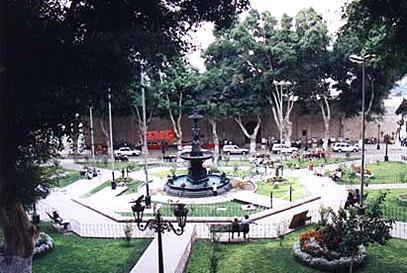Moquegua, Moquegua, Peru
Suggest Place to Visit
1109
Track to location with GPS |
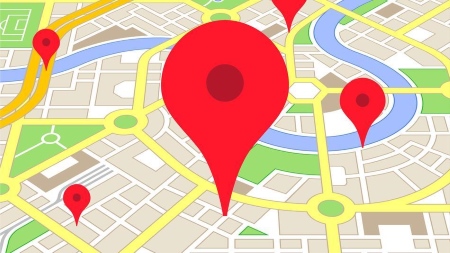 |
During the Early Horizon the region was assimilated by the Pucará Culture; in the Middle Horizon, for the Tiahuanaco Culture. Later the Aymara kingdoms dominated. Over the years, the entire region came under the power of the Tawantinsuyo. Around 1540, more or less, the first Spaniards arrived in search of land to settle. One of the thirteen from Gallo Island, Juan de la Torre, led the dominance between the Huaynaputina and Tixan mountains. With the founding of the city of Moquegua (1541), the port of Ilo was created at the same time; There in 1713, several mills were established to make the wheat of the region. Moquegua distinguished itself in the struggle for independence and for this reason it was given the title of city (January 9, 1823). A Moqueguano hero, Marshal Domingo Nieto, fought bravely in the battles of Junín and Ayacucho. After the Independence of Peru, the administrative division of the country was preserved that of the colony with minimal changes, this is how Moquegua went from forming one of the Departments of the Arequipa Administration to being one of the seven Provinces of the Arequipa Department, This situation was preserved until the 1830s, when due to internal disputes in Peru and the Bolivian interventionism of Santa Cruz in Peruvian politics and the formation of the Peru-Bolivian Conferedarcioón, the towns of Moquegua, Locumba, Tacna and Arica speak out in favor of joining the Alto Peruan provinces. However, it is arranged that a new Department be created in Southern Peru, the so-called Litoral Department with the then Arequipa provinces of Arica and Tarapacá. Once the confederation is dissolved, this new department is dissolved, to which it is later reorganized by adding the Province of Moquegua, and is renamed the Department of Moquegua. During the War of the Pacific the region endured the Chilean incursion, which devastated people and buildings. However, until today the beauty of its landscapes and the friendly calm of its inhabitants remain intact.
Towards the north it limits with Puno and Arequipa; to the south with Tacna and the Mar de Grau; towards the east with the departments Puno and Tacna; towards the west with Arequipa and the Mar de Grau (Pacific Ocean that corresponds to Peru). Located in the southwest region, it has coastal and mountain regions. Ubinas, its disturbing volcano, is the only one in activity in all of Peru. On its slopes, the land is fertile, in contrast to the desolation of its peaks.
Its capital, the city of Moquegua, has one of its main attractions in viceregal architecture. Notable, for example, are the Church of Santo Domingo, the ruins of the Matriz Church, the ruins of the Convent of the Jesuits, the house of the Diez Canseco family, the house of Martina Fernández y Cornejo, the house of the Fernández Dávila family. Towers. In the surroundings the valleys of Moquegua, Samegua, Torate, Omate and also those of Ilo stand out. Likewise, the observatories of Punta Coles, Alto La Villa, the Cuajone viewpoint and the Ilo roundabout and, on the other hand, the Virgen de la Candelaria sanctuary. In Ilo, the El Algarrobal site museum is a must. In the province of Mariscal Nieto, 24 kilometers from the city of Moquegua, is the district of Torata, where you can see beautiful village houses, the impressive parish church and the stone mills, currently in operation. also the impressive Cerro Baúl.
In the high Andean part of Moquegua, one of the most beautiful valleys of Peru is located, Carumas, Cuchumbaya and San Cristobal, together they form an incomparable landscape in Moquegua of fertile lands, of Pre-Inca and Inca terraces that are currently cultivated, full of canyons. , streams and rivers that are tributaries of the Tambo river, we also have the hot springs of Cucuumbaya and the most beautiful hot springs in southern Peru Putina that together with the cold water river form the Huatalaque river, turning into a river of several km. long of hot water, in Carumas we have the San Felipe Church, a jewel of colonial architecture based on Sikh stone, the stone bridge, the crosses of Alto and Huataraquena, the ´´Sarauja´´ can be seen throughout the Valley Typical dance of the area and the most representative of the Department of Moquegua, from fine melodies to accompanied by the 40-string charango, Carumas, Cuchumbaya and San Cristobal is a Valley that opens to national tourism and is projected to neighboring countries, in the In the highest part we have the Majestic Ubinas and Ticsani, two fierce volcanoes that guard the valley, thus making this area a strong tourist attraction.
Comments
We don´t have yet any comments about:
City of Moquegua
City of Moquegua
Be the first to leave a comment as it is very important to inform other people
Outros locais a visitar
Within a radius of 20 km from:City of Moquegua
Mirador Turístico de Moquegua |
| 0,2 Km |
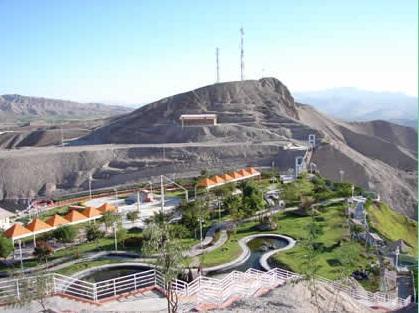 |
Casa de las 10 Ventanas |
| 0,6 Km |
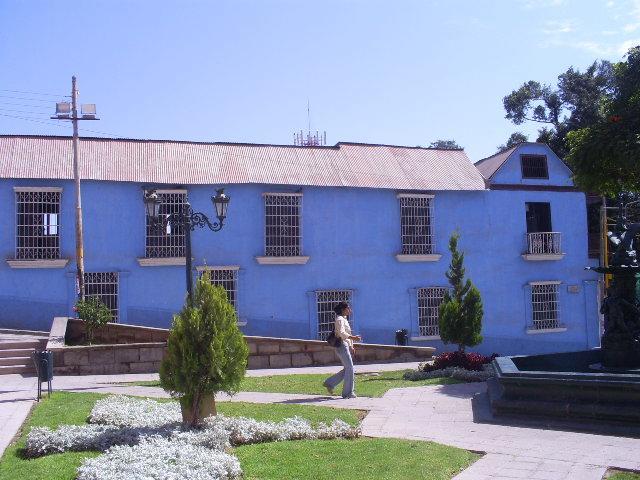 |
Museo Contisuyo |
| 0,6 Km |
 |
Plaza de Armas de Moquegua |
| 0,6 Km |
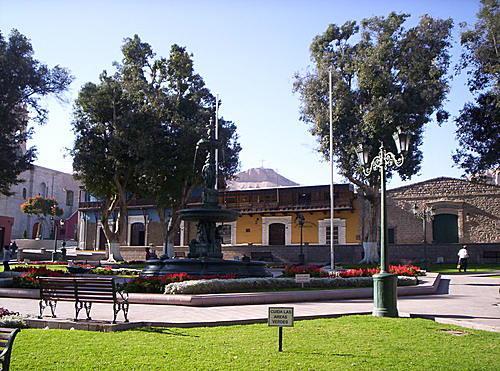 |
Cristo Blanco de Moquegua |
| 0,7 Km |
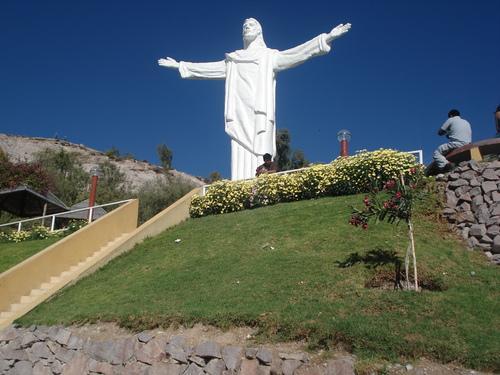 |
Catedral de Santo Domingo |
| 1,0 Km |
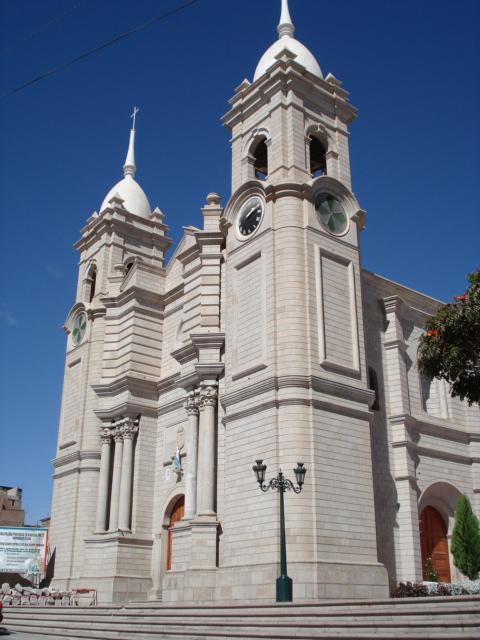 |
Templo de Belén y Plazuela |
| 1,1 Km |
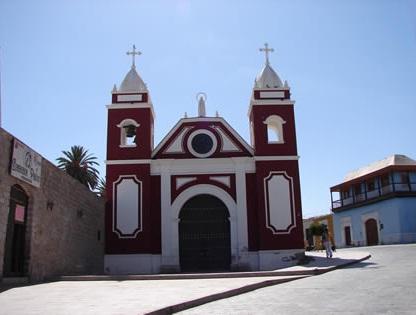 |
Puente Colgante de Moquegua |
| 1,8 Km |
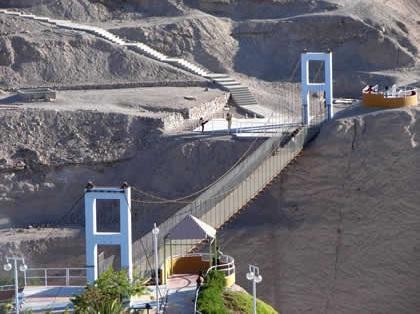 |
Sitio arqueológico de Cerro Baúl |
| 9,2 Km |
 |
Los Molinos de Torata |
| 15,7 Km |
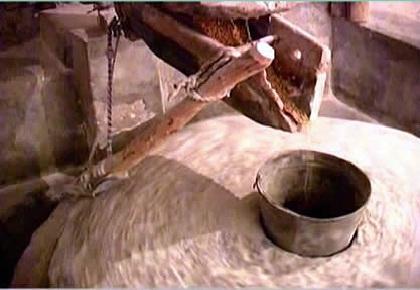 |
Plaza de Armas de Torata |
| 15,8 Km |
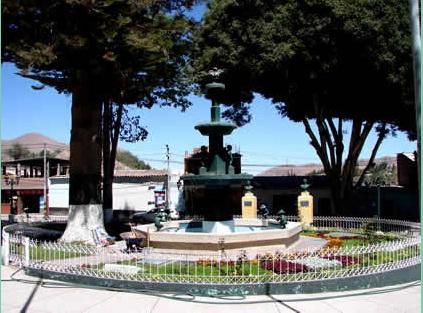 |
Torata, Suiza peruana |
| 15,8 Km |
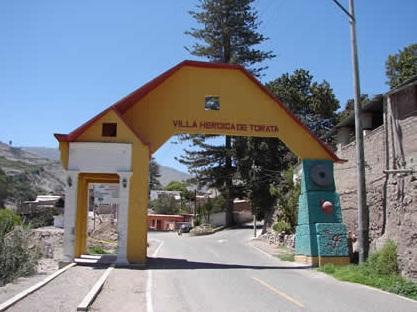 |
Iglesia San Agustín de Torata |
| 15,8 Km |
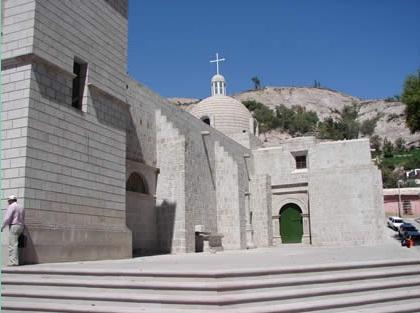 |
Las Catacumbas de Torata |
| 15,9 Km |
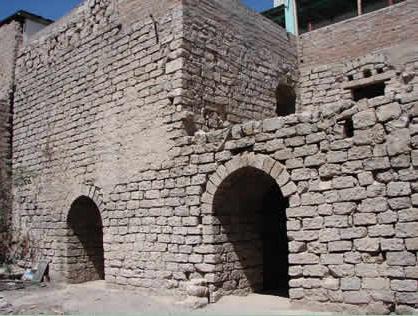 |
Complejo Turístico de Torata |
| 15,9 Km |
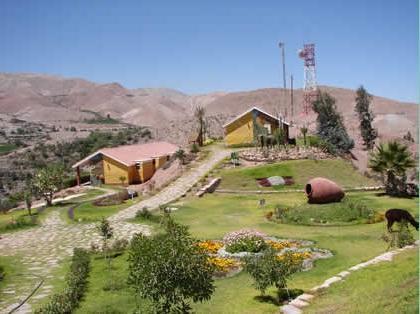 |
Hotel reservation near City of Moquegua within a radius of 20 km
Why to book with RUTAS TURISTICAS
The best prices
Our partnerships with the world´s largest operators offer research on the best market prices.
More options
At Rotas Turisticos you can book the hotel, buy the air ticket, book the transfer from the airport to the hotel and vice versa, book the local excursions, rent the car, take travel insurance and consult the places to visit and where to go.
Holiday Tips & Destinations
Hundreds of holiday destinations with all the options that allow you to easily choose the destination that best suits your dream vacation.
RUTAS TURISTICAS
Links


